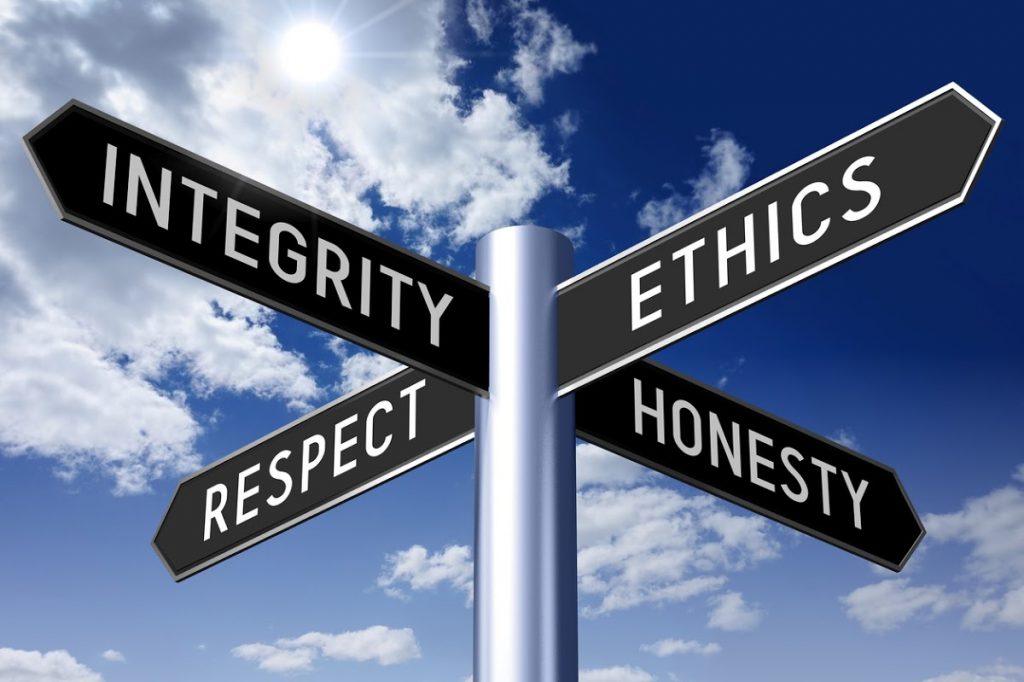- The credibility of the auditing industry has taken a hard knock, but ethical behaviour starts with individuals
Over the past few years, SA has been at the top of the leader board regarding unethical behaviour. In recent times, the “Zupta” state-capture claims have further demonstrated how entrenched unethical behaviour is in this country. Even the auditing profession, with its stringent independence and ethical requirements taught as part of the curriculum at university, is being dragged into the debacle.
Earlier this year, the Independent Regulatory Board for Auditors (IRBA), exposed several auditors accused of consistently contravening its professional standards and the law.
In the words of SA’s Auditor-General Kimi Makwetu, “The credibility of the accounting profession in SA is in the gutter.” The industry as a whole took a mammoth knock, with scandal after scandal being brought to the fore, leaving one of the country’s most trusted industries scrambling to pick up the pieces of its credibility.
I proceeded to search for a definition of ethics and this is what I found: “Moral principles that govern a person’s behaviour or the conducting of an activity”. One would think that moral principles are foundations that should be taught or demonstrated during childhood.
The reality is that bribing traffic officers or making excuses not to receive a fine are considered by many as acceptable practices in SA. Speeding is tolerable if you are late for work or late to drop off the kids at school. Throwing your unwanted waste out the car window is also a norm. Lying about your skills and experience to get a job is also acceptable, as some of our politicians in government have been found to have done.
“There is a glaring absence of consequence for all wrongdoing,” says Makwetu, and I agree. I tend to see a blurred line as to what South Africans find ethical. It seems that we keep pointing fingers at one another and have been influenced by the behaviour of others in justifying our compromised moral principles. If the masses are doing it then it’s acceptable.
“I believe that ethics cannot be taught but rather demonstrated; the classic ‘do as I say, not as I do’ mentality needs to end”
Except we downplay the effects of this thought process on our future generation. “We need to have leaders who will be guided by principle and adhere to what will be good for the common people all round,” said President Cyril Ramaphosa. Words to live by.
I see my child learning from these actions from either myself or others and I wonder, how will they make the change? How will young South Africans transform?
I believe that ethics cannot be taught but rather demonstrated; the classic “do as I say, not as I do” mentality needs to end. It has to start with the simplest of things, such as accepting when we are wrong and learning from our mistakes. This will create a culture of accountability and that, in my eyes, will be the biggest breakthrough.
Young or old, auditor or politician, black or white, we will all benefit from accepting this truth and seeking to improve. We are a young species, which, at times, displays great potential — and at others, we are our own worst enemies.
In the auditing profession, trust and credibility needs to be restored. Auditors report on reportable irregularities to the IRBA, but this is not made public. Maybe there should be a mechanism whereby this information becomes public knowledge so as to alert the public of the irregularity and give them the comfort that the auditors are delivering on their responsibilities.
Certain audit firms turn away clients of questionable reputation, and other firms accept them. The auditing profession should stand together and decline appointment as auditors of these clients, thereby forcing the shareholders and board of directors to deal with the individuals with questionable reputations and appoint individuals with good standing and reputation.
Audit committees need to improve their skill sets and also be responsible for the audit tender process, rather than delegating this responsibility to management. The members of the audit committee are independent, non-executive directors who should be able to select auditors not based on price or prior affiliations, but by expertise, capability and audit quality.
There is also an expectation in the market that the role of an auditor is to detect fraud. This is not true. There needs to be further education to the public as to the role and responsibility of an auditor that will help bridge the expectation gap.
Let us start with reflecting upon ourselves and being accountable to one another in the simplest of actions, and maybe, just maybe, the future generation of SA will un-blur the lines and build the will to do what is right.
- Muljee is national head of audit with BDO.

